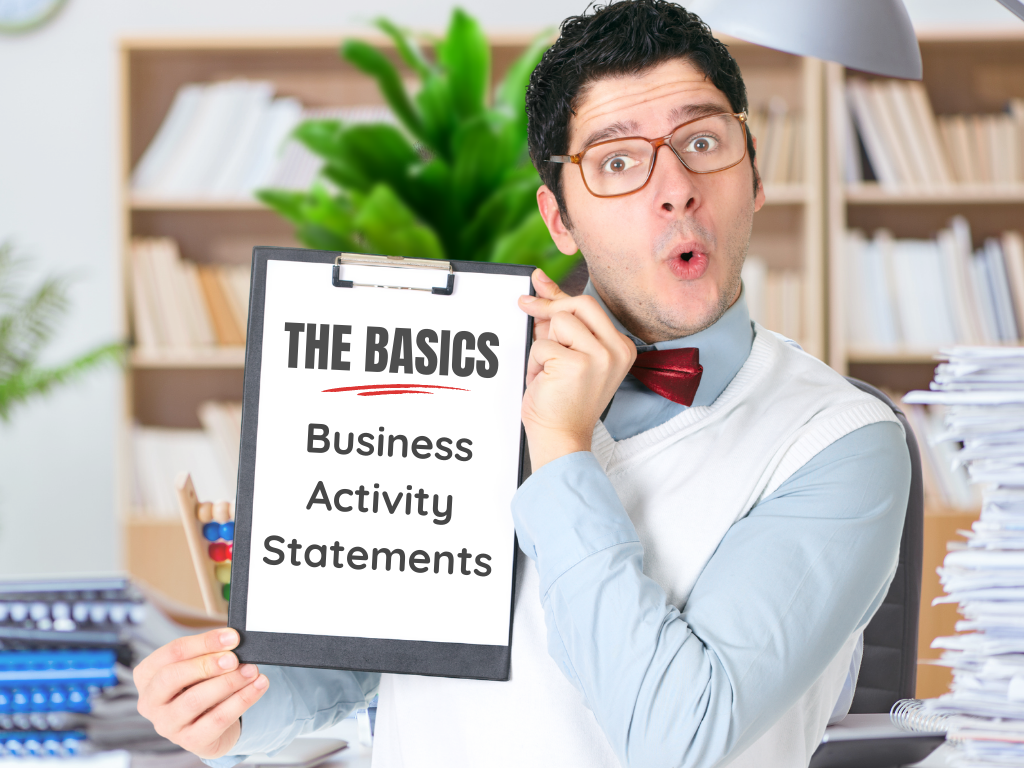Categories
The Basics of Business Activity Statements (BAS)

What is a BAS
A Business Activity Statement (BAS) is an Australian government form which all GST registered business entities must lodge with the ATO to report their tax obligations. It’s a summary of all the business taxes you have paid or will pay to the government during a specific period.
Depending on the size of your business, you will need to complete and lodge a BAS form between one and twelve times a year. The tax office uses the data on your BAS to calculate your GST refund or payable.
Taxes that are reported on a BAS include:
- Goods & Services Tax
- Pay as you go income tax instalments
- Pay as you go tax withheld
- Fringe benefits tax instalment
- Luxury Car Tax
- Wine Equalisation tax
- Fuel tax credits
- Instalment notices for GST and PAYG instalments
What do I need to do?
You are required to keep a record of all GST you have collected on sales, and how much you paid on business related purchases. You don’t need to submit the tax invoices upon lodgement of your BAS, but you will be required to keep them on hand as the ATO may request to see them at a later date.
How do I lodge my BAS?
Business Activity Statements can be lodged online via:
- A registered Tax Agent or BAS Agent (usually an accountant or bookkeeper)
- The ATO’s online business portal
- Your online accounting software
- Your myGov account if you are a sole trader
You will be required to lodge your BAS either monthly, quarterly, or annually, depending on the GST turnover of your business entity.
When are the due dates?
Make sure you keep on top of your BAS lodgments to avoid any issues with the tax office.
- If your GST turnover is $20 million or more, you will need to lodge
- If your GST turnover is less than $20 million, you will need to lodge
- If you are voluntarily registered for GST and your GST turnover is less than $75,000 (or $150,000 for non-profits), you need to lodge
- If your GST turnover is under $10 million, you may be able to report annually but you will still be required to pay a quarterly GST instalment.
Quarterly BAS Standard Due Dates:
| Quarter | Due Date |
| July, August and September | 28th October |
| October, November and December | 28th February |
| January, February and March | 28th April |
| April, May and June | 28th July |
Note: The above due dates are extended by 4 weeks if the lodgment is made by a tax practitioner using ELS.
Monthly BAS Due Dates:
The due date for lodgement and payment of your monthly BAS is the 21st day of the month following the end of the taxable period.
- For example, a September monthly BAS is due on 21st
Annual Due Date:
The date for lodgement and payment of your annual GST return is 31st October.
If you are not required to lodge a tax return, then the due date is 28th February following the annual tax period.
If you are using a registered tax or BAS agent, different dates may apply.
What if I need to change my reporting and payment cycle?
Depending on your circumstances, you may be able to alter how often you lodge and pay your BAS.
If you need to change your reporting and payment cycle early in the lodgement period (e.g., in the first month of the quarter or at the beginning of the financial year) you can usually begin the new cycle straight away. Otherwise, the new cycle will take effect from the start of the next quarter or year.
Do you have any further questions about Business Activity Statements? If so, please contact our friendly team at champions@parisfinancial.com.au or via phone on: (03) 5970 8100.
